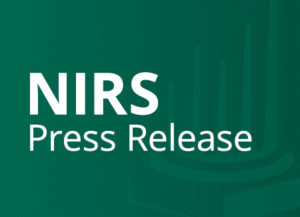NEW POLL FINDS HIGH SUPPORT AMONG KENTUCKIANS FOR PENSIONS
86 Percent Say All Workers Should Have Access to a Pension; 92 Percent Say Pensions Good Tool to Recruit Teachers
WASHINGTON, D.C., August 24, 2017 – Eighty-six percent of Kentuckians say that all workers, not just those in the public sector, should have a pension plan according to new polling results released today by the National Institute on Retirement Security (NIRS). These findings are consistent with national polling conducted earlier this year by NIRS that found 86 percent of Americans say all workers should have access to a pension plan.
The new Kentucky polling also reveals high support for teacher pensions, with 84 percent expressing support for public school teachers pensions in the Blue Grass state. Additionally, 92 percent of Kentuckians agree that pensions are a good way to recruit and retain educators and other public employees.
The polling comes at a time when Americans are deeply concerned about their economic security in retirement, and as Kentucky policymakers examine retirement plans for public workers. Nationally, some 88 percent of Americans agree that the nation faces a retirement crisis, and the concern is high across gender, income, age and party affiliation.
“We hope these findings are helpful to Kentucky policymakers who are looking at ways to shore up economic security in retirement for their constituents. Retirement insecurity is a major worry for all Americans across party lines, and perhaps even more so in Kentucky given its economic and job challenges,” says Diane Oakley, NIRS executive director.
Nationally, more than three-fourths of Americans (77 percent) say the disappearance of pensions has made it harder to achieve the American Dream. Some 71 percent of Americans say that pensions do more to help workers achieve a secure retirement as compared to 401(k) plans.
Oakley added, “These Kentucky poll results also provide important insight as elected officials consider how to fortify pension plans for the state’s public workers. It’s evident from the polling that Kentuckians see the value and importance of public pensions as a workforce tool to attract and retain teachers and to provide a modest but stable retirement income for public workers like school teachers.”
“Competitive retirement benefits are particularly important for Kentucky teachers given their low pay and the national teacher shortage,” Oakley said. “A Kentucky teacher’s weekly wages are 21 percent lower than workers with comparable education, and school systems in almost every part of the state face teacher shortages in areas such as technology, mathematics and science. While teachers have pension income in retirement, it still doesn’t close their salary gap. So, it makes sense that 84 percent of Kentuckians agree that teachers need pensions to compensate for lower pay. Moreover, pensions keep teachers in the classroom, and we need experienced teachers to prepare children for good jobs that will grow Kentucky’s economy.”
The poll findings are as follows:
- Kentuckians strongly support defined benefit (DB) pensions for all workers, not just those employed by state and local government. Some 86 percent of Kentuckians agree that all workers should have a pension.
- Support is high in the state for public school teacher pensions. Some 84 percent of Kentuckians say that public school teachers deserve a pension to compensate for lower pay, with more than half (52 percent) in strong agreement.
- In overwhelming numbers, Kentuckians believe that offering pensions is a good approach for recruiting and retaining qualified public workers like teachers, police officers and firefighters. Some 92 percent of Kentuckians are in agreement, with 52 percent in strong agreement.
Defined benefit pensions are widely available to public sector workers across the nation, and can provide the same retirement benefit as an individual 401(k)-type plan at about half the cost. The few states have looked at eliminating pensions and moving new hires into 401(k)-type defined contribution (DC) accounts, but this offered only false hopes and failed to lower costs or reduce funding shortfalls often caused by states skipping their full actuarial contributions. In fact, the experience of these states shows that a DB to DC switch increasing retirement costs for employers and taxpayers. Moreover, public employees overwhelmingly choose pensions over 401(k) accounts when given a choice.
The polling was conducted in May 2017 by Greenwald & Associates for NIRS as a statewide online poll of 805 Kentuckians aged 25 or older to assess their views toward pensions. Greenwald & Associates balanced the data to reflect the demographics in Kentucky for age, gender, and income. The margin of error is plus or minus 3.5 percent. The comparative national polling also was conducted by Greenwald, and was completed as a nationwide telephone interview of 800 Americans age 25 or older in to assess their sentiment regarding retirement and actions policymakers could take to strength retirement.
The National Institute on Retirement Security is a non-profit, non-partisan organization established to contribute to informed policymaking by fostering a deep understanding of the value of retirement security to employees, employers, and the economy as a whole. Located in Washington, D.C., NIRS’ diverse membership includes financial services firms, employee benefit plans, trade associations, and other retirement service providers. More information is available here.
Greenwald & Associates is a leading full-service market research firm with unique focus on the financial services, employee benefits, and healthcare industries. We take pride in our reputation for extensive research knowledge, industry expertise, and commitment to serving the needs of our clients. We hit the ground running, saving time and money by designing better research solutions, and delivering more actionable insights with broader industry and economic trends in mind. More information is available at www.greenwaldresearch.com.
Contact: Kelly Kenneally | kkenneally@nirsonline.org | 202.457.8190
